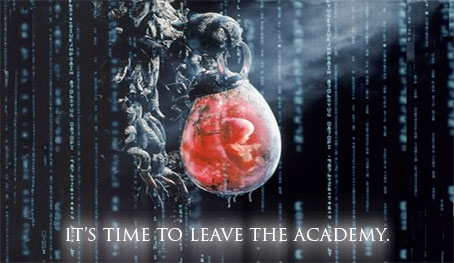Jun
4
2010

Reformation: Redefinition or Glorification?
Pastor David P. Cassidy discussed the redefinition of the “unchangeable Roman church” by Cardinal Newman, a component integral to the possibility of the revolutionary Vatican II, before taking listeners on a tour of the changes that swept through the institution in the twentieth century. Here is the conclusion of the lecture:
…Vatican II represents the most significant shift, not simply within the Roman Catholic Church and in our relationship with it, but in the whole history of church councils. Words such as charism, conscience, the priesthood of all believers, brothers and sisters, collegiality, and so on, dominate the discussions in the documents of the councils. Scholastic theological terminology is eschewed largely in favour of biblical vocabulary. Absent, gone, are words of intimidation and threat, and alienation and exclusion. Vatican II issued not a single doctrinal definition, though that is what councils had always done. Not a single anathema, not a single canon. Power words are gone, replaced by persuasion. Style, of course, has a lot to do with the difference in meaning, as the difference between prose and poetry makes clear. By its choice of language, Vatican II sought to present the Roman Catholic Church as one which retained an interior hierarchical reality, but with a new exterior, serving, personality.
So, what do we learn at the end of this tour?
Continue reading
Comments Off | tags: Church Fathers, Church History, David Cassidy, Liberal theology, Postmillennialism, Roman Catholicism | posted in Quotes
Jun
2
2010
or Disputatio with God
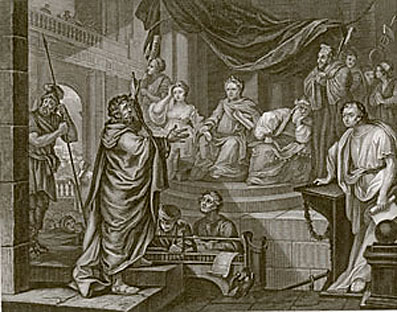
Re The Wrath of Love, Michael Micklow commented:
(Correction – not Michael Shover – Michael got his Michael’s crossed)
“The prophet did not have to remind God, so much as he had to remind himself of the love of God, and to see God’s judgment as the wrath of love.”
What about the dangerous yet successful Mosaic paradigm in Exodus 32:7-14? In this section, the prophet is able to approach, contest and sway God’s wrath (vv. 11-13). In response to Moses’ challenge, the text tells us, “and the Lord changed his mind about the disaster that he planned to bring on his people” (v. 14)…
… And what was the cornerstone of his defense? — the appeal to memory (v. 13). Moses cites the exodus event, and he further appeals to the covenant established with Abraham.
Continue reading
Comments Off | tags: Ascension, David, Habakkuk, Intercession, James Jordan, Maturity, Memorial, Moses, Psalms, Satan, Zechariah | posted in Apologetics, Biblical Theology
Jun
1
2010

I said, “You are gods, and all of you are children of the Most High. But you shall die like men, and fall like one of the princes.” Psalm 82:6
As discussed elsewhere here, the five-point Covenant model as it gets played out in history becomes seven-point. The central “Ethics” gets split into three: Law-Testing-Law.
Moses, the Covenant head, ascends and receives the Law. He opens it for Israel as Mediator. Israel, as body, is tested under the Law. The Law is given again to a “resurrected” Israel, the next generation.
In microcosm, we see this in the incident with the golden calf. Moses is given the Tablets, Israel is tested, and the Tablets are broken. Moses brings the Law a second time.
In macrocosm, the Law is given from Sinai, Israel is tested for forty years, and Moses brings the Law again in Deuteronomy to a “resurrected” Israel, the next generation.
Continue reading
Comments Off | tags: Exodus, John, Moses, Pentecost, Peter Leithart, Vindication, Zechariah | posted in Against Hyperpreterism, Biblical Theology, Quotes, The Last Days
May
31
2010
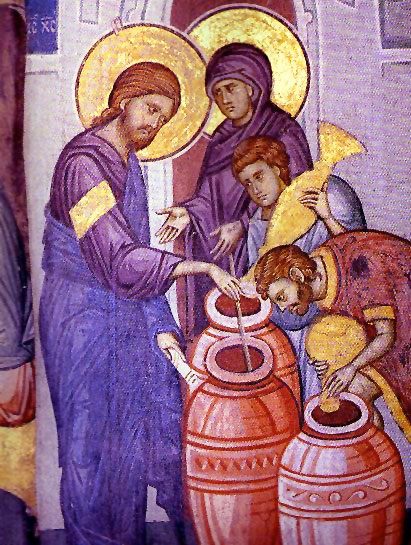
“The Son of Man has come eating and drinking, and you say, ‘Look, a glutton and a winebibber, a friend of tax collectors and sinners!’” (NKJV) Luke 7:34
Some good logical thoughts concerning alcohol from Andre Rook’s blog, and comments from me at the end:
Alcohol is synonymous with sin for many. Still for others it is considered an act of Christian love to perpetually abstain from alcohol, to provide a good Christian witness to others. My beef with the latter view (the former being easily dismissed on account of Scripture, and also condemned in the heresy of Manicheism) is that it creates a counterfeit virtue for the Christian.
Continue reading
Comments Off | tags: Alcohol, Andre Rook, Legalism, Maturity, Pharisees | posted in Biblical Theology, Christian Life, Quotes
May
29
2010
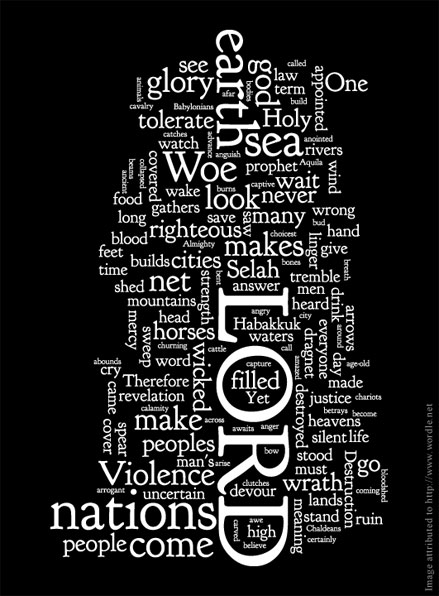
(From The Magnificence of Mercy by Geoffrey Bingham)
‘In wrath remember mercy…’
It would seem that Habakkuk had to remind God that in his wrath He should remember mercy towards errant Israel. The covenant revelation of God in Exodus 34:6 was that He was (is) ‘slow to anger’ (Num. 14:18; Neh. 9:17; Ps. 86:15), especially in regard to Israel. The prophet did not have to remind God, so much as he had to remind himself of the love of God, and to see God’s judgment as the wrath of love. If we ask what causes God’s actions of mercy, grace, slowness to anger (long-suffering), steadfast love, faithfulness, forgiveness and even refusal to clear the (impenitent, obdurate) guilty—as set out in Exodus 34:6-7—then we must answer that it is His love.
Continue reading
2 comments | tags: Ephesians, Exodus | posted in Biblical Theology, Quotes
May
28
2010
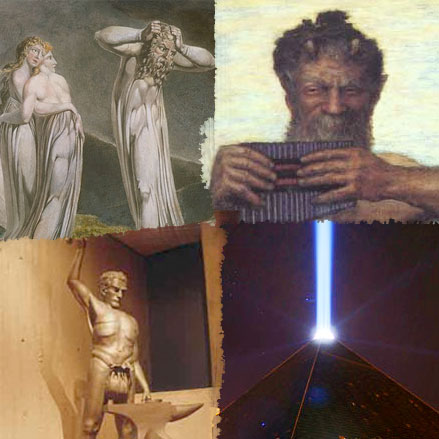
Very often, the full significance of certain events and people early in Genesis is not apparent until we observe the same patterns of sin and redemption as they appear in greater detail later in Biblical history. (Well, that’s my story and I’m sticking to it. You be the judge.)
Continue reading
Comments Off | tags: Genesis, Typology | posted in Biblical Theology
May
27
2010
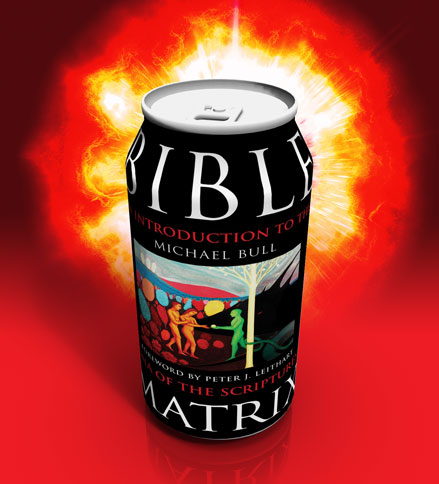 INGREDIENTS: An irrefutable demonstration of Genesis 1 as the foundational shape of both Biblical history and Biblical literature; an exciting, entry-level introduction to Systematic Typology; a demonstration of the use of this system in the Bible that might make even Christopher Hitchens’ jaw drop; many unspoken but obvious implications of this premise including: a) evidence for the unity of the entire Bible, b) a demonstration that Genesis 1-11 is history because it gradually builds a foundation for the necessity of the call of Abraham, c) evidence for the sovereignty and wisdom of the God Who orders all events in history according to His plan, no matter how chaotic things appear at the time; and finally, an overview of New Testament history based on all the Biblical structures previously observed that has enormous implications not only for hermeneutics but for the future of Christianity. And sugar.
INGREDIENTS: An irrefutable demonstration of Genesis 1 as the foundational shape of both Biblical history and Biblical literature; an exciting, entry-level introduction to Systematic Typology; a demonstration of the use of this system in the Bible that might make even Christopher Hitchens’ jaw drop; many unspoken but obvious implications of this premise including: a) evidence for the unity of the entire Bible, b) a demonstration that Genesis 1-11 is history because it gradually builds a foundation for the necessity of the call of Abraham, c) evidence for the sovereignty and wisdom of the God Who orders all events in history according to His plan, no matter how chaotic things appear at the time; and finally, an overview of New Testament history based on all the Biblical structures previously observed that has enormous implications not only for hermeneutics but for the future of Christianity. And sugar.
Continue reading
6 comments | tags: Bible Matrix, Systematic typology | posted in Bible Matrix, Biblical Theology
May
26
2010
or Professor Richard’s Vestigial Eyes

From the latest Creation Research newsletter:
After noting that animals living in perpetual darkness have “vestiges of eyes”, Dawkins asks the following question: “Given that a cave salamander lives in perpetual darkness so has no use for eyes, why would a divine creator nevertheless furnish it with dummy eyes, clearly related to eyes but non-functional?” (Dawkins, Greatest Show, p. 351)
Continue reading
Comments Off | tags: Richard Dawkins | posted in Creation
May
26
2010

“Moreover, brethren, I do not want you to be unaware that all our fathers were under the cloud, all passed through the sea, all were baptized into Moses in the cloud and in the sea…” (1 Corinthians 10:1-2)
All Israel was baptized through the sea, including the infants. But Christians who practice infant baptism confuse the corporate picture with the personal.
Continue reading
12 comments | tags: Acts, Baptism, Circumcision, Isaiah | posted in Biblical Theology



